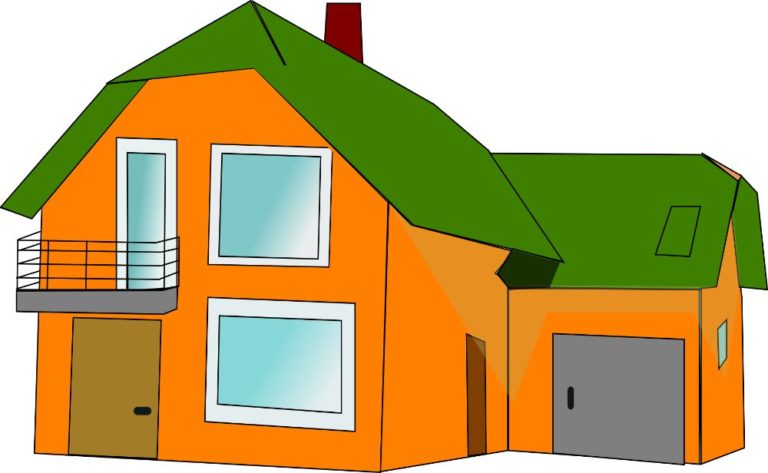How Much Does a Home Inspection Cost? Plus, Why to Never Skip This Crucial Home-Buying Step
One of the most significant aspects in the process of purchasing a home is the examination of the property. The Department of Housing and Urban Development of the United States estimates that the price might fall anywhere between $300 and $500. However, it is almost always in the best interest of buyers to invest in the services of a house inspection.
If you’re in the market for a new house, here is everything you need to know about home inspections, from the average cost of an inspection to the numerous reasons why you should never miss this crucial stage in the home-buying process.
What you need to know about the pricing of house inspections and other pertinent information
If this is your first time purchasing a home, you probably have a lot of questions about home inspections, including what they are and why they are such an important part of the process. You might think of them as a form of pre-purchase inspection for a home. Once all, purchasing a home is a significant financial commitment, and unlike reading customer reviews on Amazon, you won’t be able to get a feel of any potential issues with the property after you’ve already paid the purchase price with your own cash.
It’s possible that in order to qualify for a loan as a buyer, your lender won’t require you to have a third-party inspection of the property. However, the vast majority of real estate brokers would advise you to have an inspection for your own peace of mind. The amount for the home inspection could be something that you pay at the time of service, or it could be something that is rolled into your overall closing costs.
How much does it cost to get a home inspected?
Keep in mind that the exact price will depend on the size of your home, where you live, and what you want inspected, according to Claude McGavic, executive director of the National Association of Home Inspectors. While the average cost of a home inspection for a single-family home will generally run between $300 and $500, keep in mind that the exact price will depend on these factors (NAHI).
It’s possible that the inspection will cost more for an older home. A home inspector may also need to spend more time examining a house that appears to have flaws, which could result in an increased cost to you. Rest assured that the cost of a house inspection is a drop in the bucket compared to the financial anguish these examinations can save you in the future. In other words, the cost of a home inspection is negligible.
The following is additional information regarding house inspections, as well as advice on how to get the most bang for your buck out of the money you spend on an inspection.
What aspects of a home are scrutinized by inspectors
The National Association of Property Inspectors (NAHI) provides training that teaches professionals how to use inspection checklists to examine over 1,600 aspects of a home that have the potential to become damaged over time.
The following are the primary areas that are examined by a home inspector using procedures that are not invasive:
• Conditions that could lead to issues with the water supply or the septic system
• Structure to address issues with the foundation, windows, or doors
• Check the outside for issues with rot, decay, and excavation.
• Check the roof for issues with the shingles, flashing, and fascia.
• The interior, including framing, insulation, heating, ventilation, and air conditioning (HVAC), plumbing, and electrical concerns
• Inspection of the kitchen for compliance with the electrical code, repair cabinetry, and plumbing issues
How long does it take to complete a house inspection?
The average home inspection takes between two and three hours, but larger properties with more square footage or, for example, with two or three HVAC systems will take longer and cost more to evaluate. A modest condo or mobile home can be able to be inspected by a home inspector in significantly less time. It is possible for the price of a home inspection to be higher or lower than expected, depending on the size of the dwelling being inspected and the components that must be evaluated.
According to McGavic, there is a great deal more to check out in larger residences. It’s possible that the house has more than one heating system, a few different water heaters, and a few extra bathrooms.
The level of detail that is included in the home inspection, the final written inspection report, and the photographs that are provided to the customer by the house inspector should not affect the pricing in any way. These should be considered necessities rather than optional bonuses for any house inspection. It is not fair for you, the customer, to be required to pay an additional fee for them.
“If someone tells you that you’re going to get a more thorough examination, that’s simply hype,” adds McGavic. “That’s not going to happen.” “And if you don’t have a written report, you don’t have a house inspection,” the inspector told the homeowner.
What is the going rate for specialized home inspections?
The scope of a standard home inspection is significantly expanded in the case of specialty inspections. You can get an inspection on anything from radon to well water to termite problems from a home inspector who specializes in that particular field. Depending on whether the inspection requires specialized equipment or laboratory testing, the fee may increase by anywhere from $25 to $200 as a result of these additional inspections.
It is important for any person who is considering buying a home to shell out the money for a termite inspection (if this service is not already included in the standard inspection), but the need for any additional specialized home inspections is contingent on the region in which you live as well as any particular issues that you have with the property.
People looking to buy a home in Tornado Alley in the Midwest, for example, might pay extra for a home inspection that includes a safe room to protect themselves from the next twister. Prospective homeowners in California, for their part, frequently request that home inspectors check the earthquake strappings of a property.
How exactly do you determine which specialized house inspections your property requires? Naturally, you should consult with your real estate agent.
According to McGavic, “Real estate agents are aware of the kind of inspections that are most frequently carried out in your local county.”
How to get the most out of your house inspection and avoid common pitfalls
A home inspection provides you, as a prospective purchaser, with reliable evidence of any issues with the property. The majority of agreements to purchase homes are reliant on the findings of a home inspection, which typically includes a pest inspection. If you are armed with the knowledge that comes from your home inspection report, you may be able to either insist that the seller fix or repair certain issues before closing, renegotiate the price to reflect future repairs, or walk away from a “money pit” without losing the earnest money that you have put down.
Be conscious of the fact that not all of the faults listed on an inspection report need to be fixed immediately or should be a reason to back out of a sale. A house inspector could take into account only aesthetic factors or make a note of something that will require costly maintenance in the near future. For instance, the inspector might make a notation that the house would at some point in the future require a new roof. This knowledge enables you to make more educated purchasing decisions, but it does not necessarily imply that you should not purchase the house.
In the event that the house needs significant repairs before the sale is finalised, such as repairs to the electrical systems, you might be required to have a recheck done on that particular component. Check the terms of the contract for the inspection report to see if you are required to pay an extra charge in order to have the inspector look at the house once more. In the event that a home inspector finds something seriously wrong with the property, you, as the buyer, may have the right to withdraw your offer or to renegotiate the terms of the deal.
Even while you will have to pay some money up front for a home inspection, it could end up saving you a lot more money in the long run—possibly even tens of thousands of dollars. It is preferable to be informed about potential termite infestations, radon difficulties, and other problems before purchasing a new house or condominium, rather than being taken aback by the expense of repairing these issues at a later date.
Are you considering skipping the house inspection all together? Don’t make that mistake
In extremely competitive housing markets, prospective purchasers may seriously contemplate giving up their right to an inspection in order to increase the allure of their offer and, eventually, increase their chances of purchasing the home of their dreams. In other words, purchasers are willing to take any and all risks in order to have their offers accepted, regardless of whether or not the home they are purchasing has significant flaws, such as malfunctioning appliances, structural flaws, or damage caused by termites or mildew. Those who opt out of an inspection will be held accountable for the results of their decision, regardless of what those results may be. And the end outcome can end up costing several thousand dollars.
During the year that followed the pandemic’s onset, while we were all hunkered down in our homes for protection, some people purchased homes without first physically inspecting them. According to a poll conducted by Redfin, twenty-five percent of house buyers decided not to get a home inspection for a number of reasons, the primary one being that they wanted to move the closing process along more quickly. It is not essential to go to such lengths now that open houses are being held once again and home inspectors are reporting for duty as they have done previously. One of the things that the house inspection provides that is quite helpful is it lets you know whether or not you are financially prepared to cover a worst-case scenario after purchasing a home, such as installing a dishwasher or repairing a roof that has been damaged. It is never suggested to entirely decline to participate in a house inspection, even if doing so results in your offer being declined.






